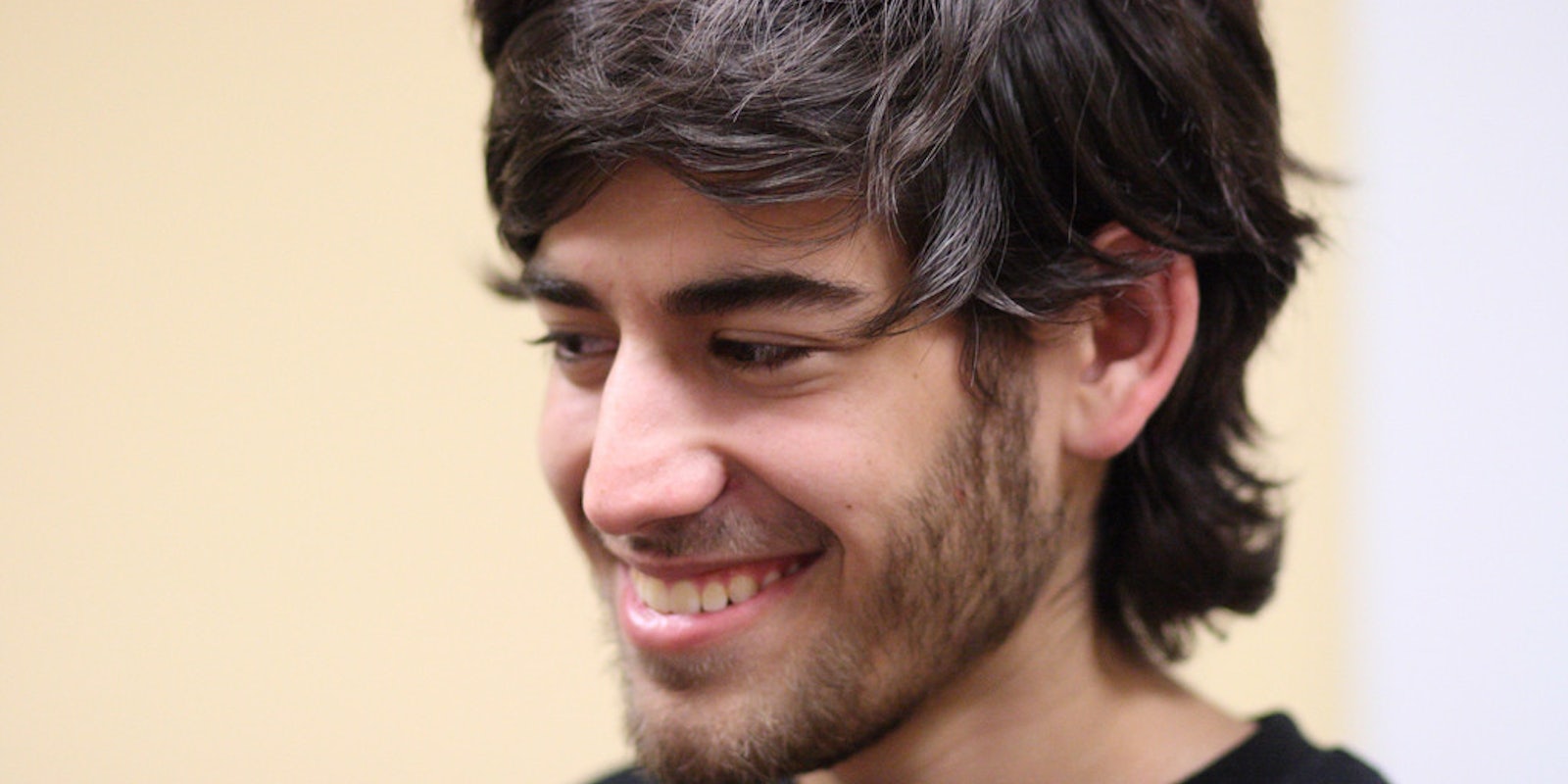A hackathon and series of lectures on digital freedom are a fitting birthday presents for Aaron Swartz, the activist and programmer who brought Reddit, SecureDrop, and millions of court documents to the public before his untimely death in 2013.
Aaron Swartz Day is a celebration of Swartz’s activism and legacy, hosted on Swartz’s birthday weekend at the Internet Archive in San Francisco, and around the world, with gatherings scheduled from Buenos Aires to Oxford. The event grew out of a series of memorial hackathons last year, according to organizer Lisa Rein, and this year will feature a screening of The Internet’s Own Boy, a documentary about Swartz’s life, work, and the criminal prosecution against him at the time of his death.
In an interview Rein conducted with SecureDrop lead developer Garrett Robinson, Robinson says the memorial hackathons were crucial in the development of SecureDrop, which enables news organizations to securely accept document leaks from anonymous sources. Swartz started the SecureDrop project, but the work was not completed until last year’s Aaron Swartz Day.
“When we took over SecureDrop, the code that we received was barely complete and very messy—just enough to express the big idea,” Robinson told Rein. “Aaron was a visionary with an endless supply ideas, and he seemed to be constantly churning them out, prototyping them to the bare minimum, and letting others take them on, refine them, improve them. Hackathons are like that too—a constant refinement, churn.”
Although a hackathon held in Swartz’s name is likely to use this refinement process to produce projects that support the free flow of information, such an event also operates in the shadow of his history. That’s why Rein made the theme of this year’s Aaron Swartz Day “setting the record straight.”
Swartz was a bright young programmer who committed suicide while facing prosecution under the Computer Fraud and Abuse Act (CFAA). Since his death came in the midst of his prosecution, it eliminated the possibility of clearing his name in court. But, as the Electronic Frontier Foundation’s newly-appointed executive director Cindy Cohn notes in The Internet’s Own Boy, the case against Swartz was “a poor use of prosecutorial discretion.” Aaron Swartz Day aims to raise awareness about the facts of Swartz’s case and demonstrate that the criminality of his actions—using software to download millions of academic documents from JSTOR—was questionable at best.
“Aaron doesn’t deserve to go down in history as some malicious hacker out to steal and make money from his loot somehow,” Rein said in an email to the Daily Dot. “Since there are projects like SecureDrop going strong, and policy movements aimed at protecting innovative students on college campuses, and more updates on the ongoing fight to have Aaron’s government documents released to the public, and so many people willing to do amazing projects in his honor, I decided to just try to include everything I could, and see how large it became.”
As Aaron Swartz Day recalls the past, the event also looks to the future. Attendees create work that shares Swartz’s passion for open communication, while also carrying on his activism. Swartz successfully advocated against the Stop Online Piracy Act; activists are now at work to reform the Computer Fraud and Abuse Act under which Swartz was prosecuted.
The Internet’s Own Boy, directed by Brian Knappenberger, screens on Saturday, Nov. 8, at The Internet Archive in San Francisco and is preceded by talks from April Glaser and Cindy Cohn of the Electronic Frontier Foundation, Yan Zhu of Yahoo, and Brewster Kahle of the Internet Archive, among others. Attendees must RSVP at aaronswartzday.org.
Photo via ragesoss/Flickr (CC BY-SA 2.0)


